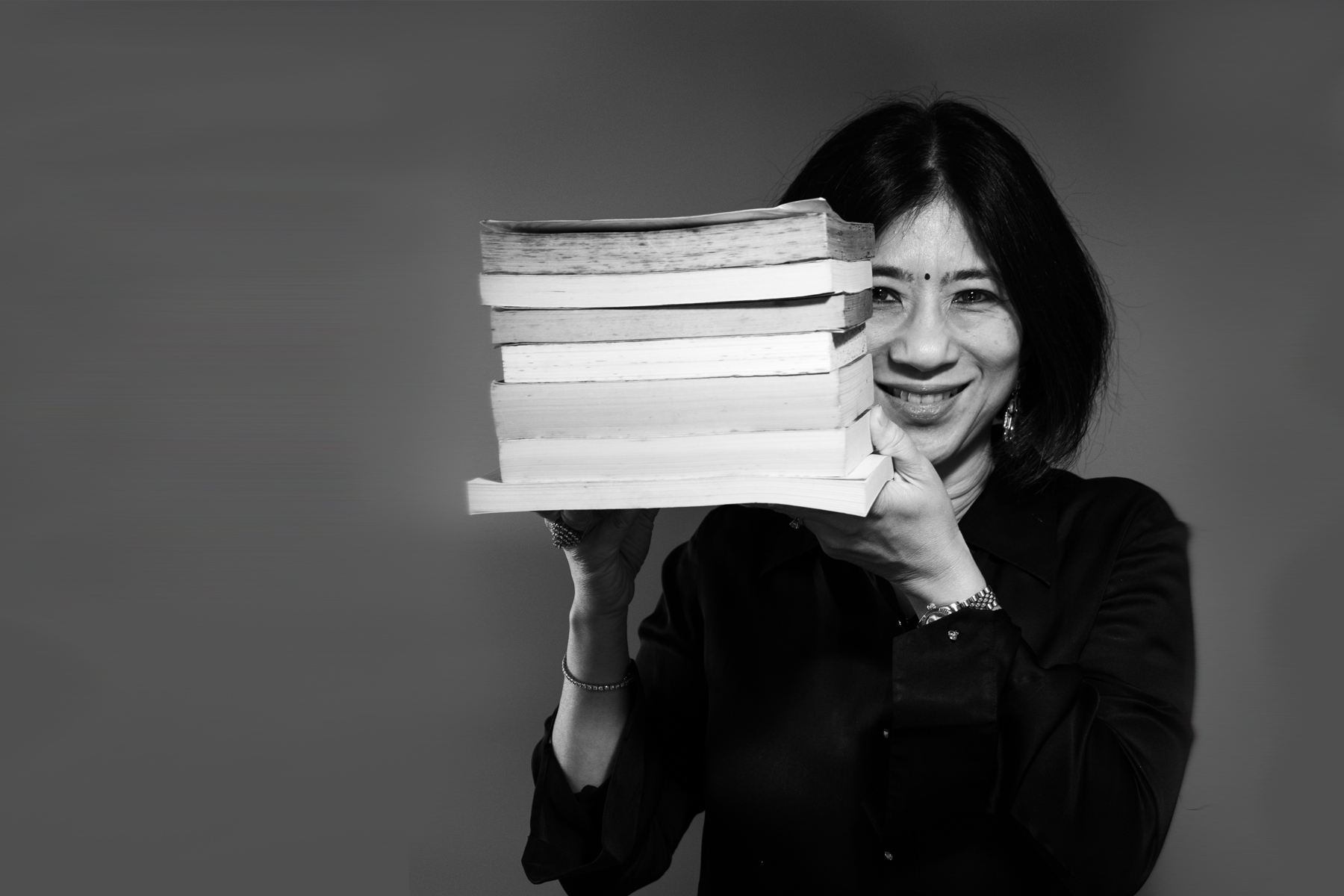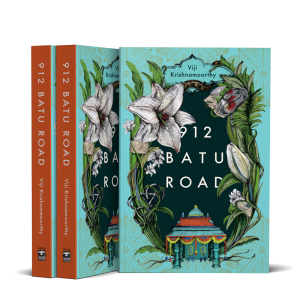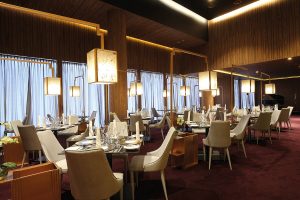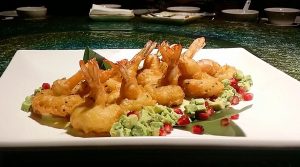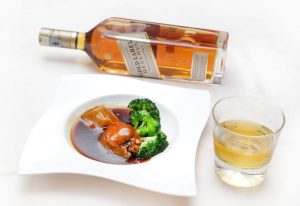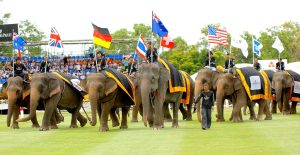We know the story of how our beloved Malaysia gained her independence; we’ve also been taught the sacrifices our early ancestors made to arrive at where we are today, through the war, through the instability, before finally being rewarded with a new home we can now call our own.
Just in time for Merdeka, Malaysian author Viji Krishnamoorthy presents to us a Malaysian tale in her debut novel 912 Batu Road that deftly weaves together vibrant fiction and meticulous research on the heroic exploits of Malayan wartime heroes – Sybil Kartigesu, Gurchan Singh and many others – who fearlessly fought for their beloved country.
Flitting between 1940s Malaya and 2008 Malaysia, it introduces us to the Iyers and the Tans, whose tranquil lives are shattered with the Japanese invasion of Malaya. An unthinkable betrayal forces both families into a treacherous game of resistance and survival.
Juxtaposed against this wartime saga of two Malayan families is a modern-day forbidden love story between their descendants. As the third generation navigates work, love and relationships, their secret affair challenges traditional Brahmin beliefs and threatens to destroy an age-old friendship.
We steal some of Viji’s time to learn more about her novel that was 20 years in the making.
You might also like: 6 books by upcoming Malaysian authors for a taste of local literature
912 Batu Road is written in two timelines telling the lives of two families. What made you want play with parallels in the story-telling?
I love reading historical fiction and I loved the idea of telling a generational story. To do that I needed to travel back in time and the best setting for me were the war years. This is the story of a Tamil Brahmin migrant who leaves his home in search of greener pastures. To give it a contemporary tilt, I have also set a narrative in the present, Malaysia in 2008.
I think it makes for interesting reading to have the past and the present sit alongside each other. The present offers (I hope) the reader a window into the life of a Tamil brahmin family trying to hold on to traditional customs and values. And the war offered a platform of history and drama so I could create a melange of real and fictional characters and weave my story through the threads of a historical timeline.
What were some of the challenges in writing a story set in the past?
Whilst I could write the present, drawing from my own experiences and knowledge, a place I knew and was comfortable in, writing the past was more of a challenge as it was important to get the history right. For that to be possible, a fair amount of reading had to be done.
How many years of research went into story, and how many years did it take for you to put it into words? Share with us the timeline of 912 Batu Road’s making.
912 Batu Road has been a long and arduous 20-year journey. It began as Chapter 1, a very lame birthday gift to my husband. From that letter, an idea germinated around the millennium and was very quickly covered by a detritus of self-doubt. My husband helped me with the research, and we dipped in and out of it through the quiet years. While I did make notes, the serious writing started in 2007 and the first draft was completed in 2010. Even though I had close friends read it in the raw, it took me another eight years to pluck up the courage to do something with the manuscript.
Are there any specific elements in the book that you borrowed from personal experience? How did you apply it in the story telling?
Yes! It would be hard not to draw from some personal experiences and preferences as I wrote from a place deep within me. Geeta and I share a love for Sauvignon Blanc, Jo Malone’s Orange Blossom, the colour orange, the artist J. Anurendra’s work and Indian authors. Pangkor Laut and London hold very fond memories for me, and The Muffin Man on High Street Kensington is a lovely little coffeeshop I used to work at on weekends when I was a student. The Sunday lunch I write about is drawn from my personal bank of memories. I grew up in an extended family and our Sunday lunches were legendary and sacred! It brought all the family – children, cousins, in laws and grandchildren together for superb vegetarian food, weekly catch up and the post lunch naps were compulsory.
It’s a very Malaysian story set in Malaysia past and present. What were some of your favourite parts about writing it that ignited the biggest sense of patriotism?
I enjoyed writing the past – it gave me the liberty and space to create a narrative between real Malaysian heroes like Sybil Kathigasu, the only Malayan woman to receive the George medal award for bravery and Gurchan Singh alongside fictional characters like Swamy, Chin Nam, Tochi and Elaine. Little is written about Gurchan Singh, The Lion of Malaya in our history books, and he along with many others played such a vital role in the resistance against the Japanese. He was the face behind The Singa Organisation and the morale boosting Singa posters, so it was very important to shine some light on his contribution.
The sacrifices and the danger that Malayans like Sybil Kathigasu, her husband Dr Kathigasu, Gurchan Singh and many others made and put themselves in for love of their country needed very little dressing up on my part. It is impossible to read their stories and not feel patriotic. Working in Tochi and Gurchan’s close shave with the Japanese, Swamy’s surreptitious passing on crucial information and Kah Hoe’s own contribution was a privilege to write next to these real heroes.
The war aside, are there any other aspects about Old Malaya that readers can look forward to delving into in the book?
Apart from the war, the past does chart the story of a migrant’s journey to a new land, a country he soon calls his home. You watch Rangaswamy take tentative steps as he is met with the different sights, sounds and smells of Penang and how he assimilates and settles in Malaya, and you see this spelt out in the letters he writes to his father.
What is the significance of 912 Batu Road for you to choose it as the title?
When I bought my first car, a hunter green Proton Satria, I had requested for either 219 or 321 for my number plate. The only available number was 912. I drove WFS 912 to my aunt’s house to have it blessed and she stopped in her tracks when she saw the number plate. She told me that 912 Batu Road was the house my father was born in. Ever since, these three numbers have been significant for me on several levels.
You can purchase 912 Batu Road at the official Clarity Publishing website here.
(Photos: Clarity)


